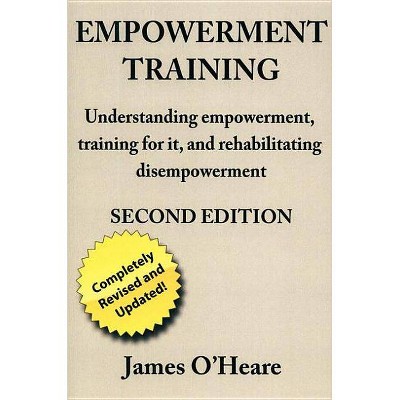Politics of Empowerment - by David Pettinicchio (Paperback)

Similar Products
Products of same category from the store
AllProduct info
<p/><br></br><p><b> About the Book </b></p></br></br><i>Politics of Empowerment<i> explores why seemingly firmly entrenched policies, such as the Americans with Disabilities Act, succumb to opposing forces that seek to undermine them and considers how political entrepreneurship, grassroots activism, and protest relate to one another in mobilizing against these threats.<p/><br></br><p><b> Book Synopsis </b></p></br></br><p>Despite the progress of decades-old disability rights policy, including the landmark Americans with Disabilities Act, threats continue to undermine the wellbeing of this population. The U.S. is, thus, a policy innovator and laggard in this regard. In <i>Politics of Empowerment</i>, David Pettinicchio offers a historically grounded analysis of the singular case of U.S. disability policy, countering long-held views of progress that privilege public demand as its primary driver.</p> <p>By the 1970s, a group of legislators and bureaucrats came to act as political entrepreneurs. Motivated by personal and professional commitments, they were seen as experts leading a movement within the government. But as they increasingly faced obstacles to their legislative intentions, nascent disability advocacy and protest groups took the cause to the American people forming the basis of the contemporary disability rights movement. Drawing on extensive archival material, Pettinicchio redefines the relationship between grassroots advocacy and institutional politics, revealing a cycle of progress and backlash embedded in the American political system.</p><p/><br></br><p><b> Review Quotes </b></p></br></br><br><i>Politics of Empowerment</i> is a really, really good book. David Pettinicchio tells the story of disability policy in the United States with great care and close attention to detail....This book is both a specific history of disability policy as well as a broad story of the politics of social change....<i>Politics of Empowerment</i> is in many ways the best kind of scholarship: it generates new thinking and ideas, and it gives the rest of us a strong foundation to build upon.--Jeremy R. Levine "<i>American Journal of Sociology</i>"<br><br><i>Politics of Empowerment</i> is an important work that will both broaden the view of those interested specifically in the American disability rights movement and those more generally interested in social movements of all kinds.--Stephen J. Meyers "<i>Mobilization</i>"<br><br>[A] meticulous historical and political account of the development of disability policy in the United States....I recommend this book to readers who are interested in understanding how people, politics, and governmental and organizational goals align to increase access and opportunity for marginalized groups.--Catherine Kramarczuk Voulgarides "<i>Contemporary Sociology</i>"<br><br>David Pettinicchio explains the odd but important development of disability politics and policy in the context of changing political alliances and definitions of civil rights. It's a compelling story, with lessons for advocates, policy makers, and anyone who wants to understand either group.--David S. Meyer "University of California, Irvine"<br><br>David Pettinicchio has written a broad and ambitious study of the evolution of American disability policy and disability rights, incorporating changing policy approaches, governmental institutions, and social movement activities into his account. Drawing on legislative documents, policy debates, and sociological concepts, the book situates disability within broader social policy frameworks and political trends. It will be of interest to anyone seeking to understand the interplay of disability policies, politics, and rights within the context of American policy-making.--Richard K. Scotch, Professor of Sociology, Public Policy, and Political Economy "University of Texas at Dallas"<br><br>Empirically, [this book] is a rigorous treatment of the successes and setbacks of the disability rights movement....A number of folks in our field...have discussed the importance of considering institutional actors, and what movement mobilization looks like from their point of view, rather than analyzing movements only from the perspective of movement actors. Pettinicchio does this admirably.--Joshua A. Basseches "<i>Mobilizing Ideas</i>"<br><br>This excellent addition to the policy feedbacks literature shows how federal policy helped disabled activists become fully mobilized citizens. But progress is not always linear. Recurrent retrenchment efforts mean that the push for civil rights for the disabled is incomplete, and their economic citizenship not yet fully realized. A must-read for those interested in social movements and citizen participation.--Andrea Louise Campbell, Arthur and Ruth Sloan Professor of Political Science "MIT"<br><p/><br></br><p><b> About the Author </b></p></br></br><b>David Pettinicchio</b> is Assistant Professor of Sociology at the University of Toronto and affiliated faculty in the Munk School of Global Affairs and Public Policy.
Price History
Price Archive shows prices from various stores, lets you see history and find the cheapest. There is no actual sale on the website. For all support, inquiry and suggestion messagescommunication@pricearchive.us




















